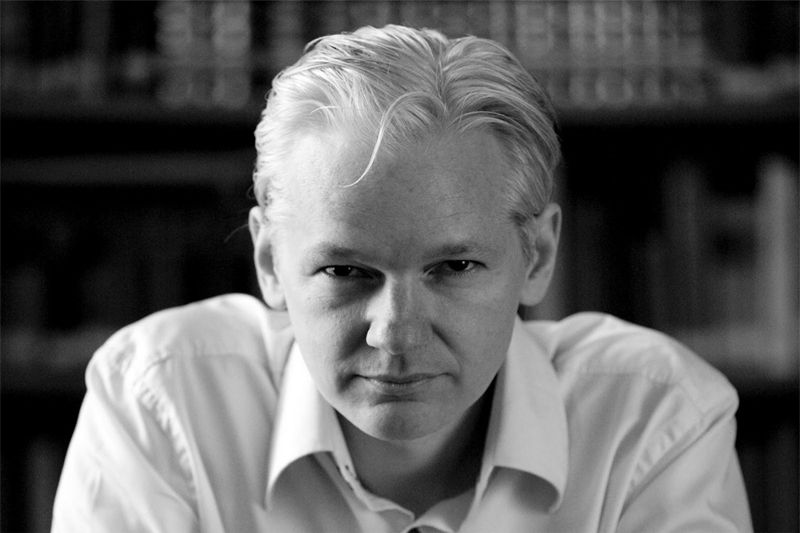Julian Assange arrested inside Ecuadorian embassy
WikiLeaks founder will be summoned to a UK court 'as soon as possible' after being arrested by the Met Police


Wikileaks co-founder Julian Assange has been arrested by British police officers seven years after seeking asylum in the Ecuadorian embassy.
The Metropolitan Police Service (MPS) confirmed it has taken the computer programmer into custody for failing to surrender to court after a warrant issued in June 2012. Assange is now set to be presented before Westminster Magistrates' Court "as soon as is possible".
Police officers were invited into the embassy by the Ecuadorian ambassador after the South American nation withdrew Assange's asylum. This follows discussions between representatives from the UK foreign office and their Ecuadorian counterparts.
Assange gained notoriety for his work with WikiLeaks, a non-profit organisation that openly publishes documents and news leaks often obtained through illicit means.
The platform particularly caught the ire of national governments in 2010 for publishing highly sensitive and classified military files regarding the wars in Iraq and Afghanistan. This included footage of a US military helicopter shooting people dead in Iraq.
Of the most prominent leaks in recent years has been the disclosure of emails and documents sent or received by staff of the Democratic National Committee (DNC) in 2016. Later WikiLeaks also released emails and documents belonging to the campaign manager for Hillary Clinton's presidential bid, John Podesta. According to the US Department of Justice, WikiLeaks obtained this data from 'Guccifer 2.0', a persona that was operated by a squad of Russian intelligence operatives who were attempting to throw the election in Trump's favour.
"This man is a son, a father, a brother. He has won dozens of journalism awards," WikiLeaks tweeted. "He's been nominated for the Nobel Peace Prize every year since 2010. Powerful actors, including the CIA, are engaged in a sophisticated effort to dehumanise, delegitimize and imprison him."
Get the ITPro daily newsletter
Sign up today and you will receive a free copy of our Future Focus 2025 report - the leading guidance on AI, cybersecurity and other IT challenges as per 700+ senior executives
His arrest falls shortly after the organisation claimed it had evidence that a spying operation had been established against Assange at the Ecuadorian embassy.
Tensions between the WikiLeaks co-founder and the embassy have been rocky for several years, with WikiLeaks also claiming the embassy has been trying to find a mechanism to eject him for some time.
The relationship particularly deteriorated in 2016 when the embassy cut Assange off from accessing the internet.
"Nearly seven years after entering the Ecuadorean Embassy, I can confirm Julian Assange is now in police custody and rightly facing justice in the UK," Home secretary Sajid Javid said.
"I would like to thank Ecuador for its cooperation and the Met Police for its professionalism. No one is above the law."
Assange was issued with an arrest warrant by the Swedish government in 2010 involving allegations of sexual assault and rape. These charges have since been dropped.
Assange refused to answer these charges at the time over fears they were being used a pretext to extradite him to the US, where he would face courts under the US Espionage Act for his role in publishing material through WikiLeaks.

Keumars Afifi-Sabet is a writer and editor that specialises in public sector, cyber security, and cloud computing. He first joined ITPro as a staff writer in April 2018 and eventually became its Features Editor. Although a regular contributor to other tech sites in the past, these days you will find Keumars on LiveScience, where he runs its Technology section.
-
 Should AI PCs be part of your next hardware refresh?
Should AI PCs be part of your next hardware refresh?AI PCs are fast becoming a business staple and a surefire way to future-proof your business
By Bobby Hellard
-
 Westcon-Comstor and Vectra AI launch brace of new channel initiatives
Westcon-Comstor and Vectra AI launch brace of new channel initiativesNews Westcon-Comstor and Vectra AI have announced the launch of two new channel growth initiatives focused on the managed security service provider (MSSP) space and AWS Marketplace.
By Daniel Todd